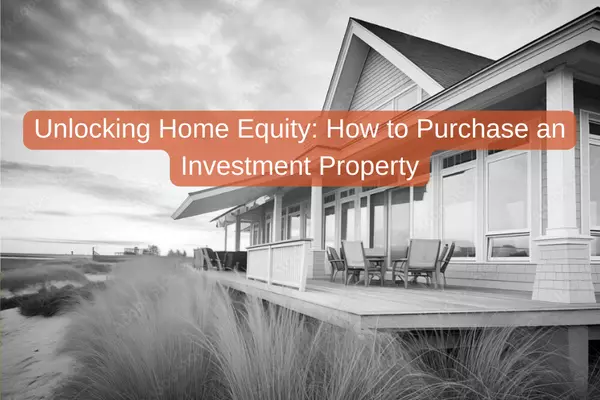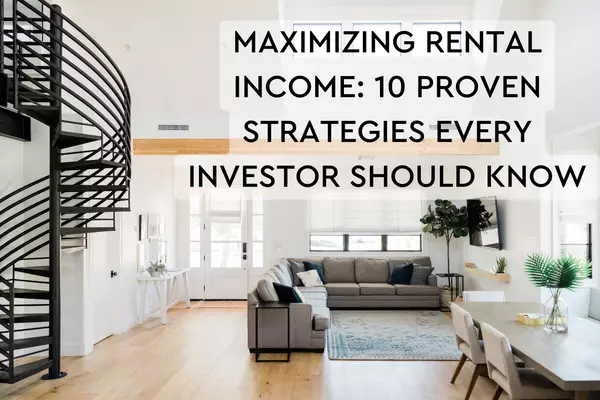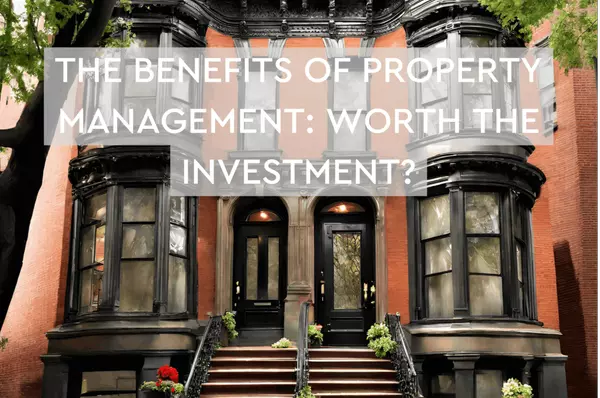
10 Proven Strategies for Beginner Real Estate Investors to Find Deals
Real estate investment is a rewarding journey that begins with finding the right deals. As a beginner, navigating this vast landscape can be intimidating, but rest assured, there are numerous avenues to explore. In this guide, we'll walk you through the 10 best ways to find real estate deals tailored for novice investors. 1. Real Estate Agents: Your Trusted Guides: Real estate agents are invaluable allies for novice investors. They possess an in-depth understanding of the market, providing access to the Multiple Listing Service (MLS) and exclusive off-market deals. It is important to work with an agent who specializes in working with real estate investors. Buying a primary residence is much different than purchasing an investment property. An investor agent should be able to analyze deals, know investment financing, and have access to investment properties. 2. Online Listing Platforms: Your Digital Hunting Ground Embrace the convenience of online listing platforms like our Penrose Realty site, Zillow, Realtor.com, and Redfin. These platforms allow you to filter and refine property searches, matching your investment criteria with precision. 3. Real Estate Auctions: Hidden Treasures Await Online real estate auctions, such as Auction.com and Hubzu, present unique opportunities for bidding on properties, including foreclosures and distressed homes. These auctions often yield properties at a fraction of their market value. 4. Direct Mail Campaigns: The Personal Touch Designing targeted direct mail campaigns can be a powerful strategy for novice real estate investors to find deals. This approach involves crafting personalized letters or postcards and sending them to motivated sellers who may be interested in selling their properties. 5. e 6. Driving for Dollars: The Adventure Begins Driving for Dollars is a tried-and-true real estate strategy where investors hit the road, scouting neighborhoods for potential investment properties. This proactive approach involves physically visiting areas, identifying distressed, vacant, or neglected properties, and noting their addresses for follow-up. It's a valuable method for uncovering off-market deals that might not be listed online or in traditional real estate listings. During these excursions, investors can assess the condition of properties, neighborhood desirability, and potential for future appreciation. Armed with this on-the-ground information, they can then reach out to property owners directly to discuss potential purchases. 7. Wholesalers: Deal Magicians Wholesalers are the magicians of real estate. They specialize in finding and negotiating deals, then passing them to investors like you. They essentially find deals and then mark up the property when selling it to you. For example, a wholesaler sends out thousands of mailers and is able to get a property under contract for $300,000. They would then assign the contract to you for $330,000, in turn making a $30,000 profit. Partnering with wholesalers can feel like discovering a secret society of deal hunters. 8. Real Estate Investment Groups: The Fellowship Join local investment groups and become part of a fellowship of like-minded investors. This shared journey involves group purchases, knowledge exchange, and the chance to experience the excitement of real estate as a team. 9. Bank-Owned Properties: The Quest for Great Deals Banks regularly list foreclosed or repossessed properties at competitive prices. These listings represent quests for treasure, where you could discover the real estate deal of a lifetime. 10. Property Management Companies: Your Insider Connection Property management companies have their own network of landlord clients looking to sell rental properties. Becoming part of this inner circle can grant you access to off-market deals. Penrose manages hundreds of rental units and often offers these properties to our existing clients and network first. If youre interested in being part of our mailing list please register here. Embarking on your journey as a beginner real estate investor is an exciting endeavor. Finding profitable deals is a crucial step towards building a successful portfolio. Armed with these 10 proven strategies, coupled with your dedication and persistence, you're well-equipped to navigate the real estate market with confidence. Always conduct due diligence, seek advice from experienced professionals, and continue expanding your knowledge. Your path as a real estate investor is filled with potential for growth and financial success. Happy investing!

How To Get Started In Real Estate Investing
Are you interested in making money through real estate investing, but don't know where to start? Well, you're in luck because I'm here to guide you through the basics of real estate investing. In this post, I'll share some tips and tricks on how to get started in the world of real estate investing. Define your investment goals: Before you start investing, it's important to define your investment goals. Do you want to make a quick profit by flipping houses, or do you want to build a long-term rental portfolio? Knowing your investment goals will help you determine the type of real estate investing that's right for you. Once you've determined your investment goals you need to get a specific criteria for the property you are looking to buy. Educate yourself: Real estate investing can be complex, so it's essential to educate yourself before making any investments. Read books, attend seminars, and talk to other real estate investors to gain knowledge and expertise. Create a business plan: A business plan is essential for any real estate investor. It should include your investment goals, budget, investment strategy, and financial projections. This plan will help keep you focused and on track towards achieving your goals. Choose a niche: Real estate investing offers various niches, such as single-family homes, multi-family homes, commercial properties, and more. Choose a niche that aligns with your investment goals and strategy. Having a specific criteria of your target property is much better than simply saying you'd like to buy a flip. For example, saying you are interested in flipping a single-family home in Waltham that has between 1,800 - 2,200 square feet of living spacewith the potential to finish the basement is much more helpful. Setting a specific target will limit the amount of time you need to make a decision on whether to buy a property or not. Also, it will make people more willing keep an eye out for those types of properties on your behalf. Build a network: Networking is critical in real estate investing. Connect with other investors, real estate agents, and professionals such as lawyers, accountants, and contractors. A robust network will help you find deals, secure financing, and get advice when you need it. Having a solid team that you work well with is important to success in real estate. Many of the best deals are ones that are not publicly listed. Having a network that can has access to off-market deals is a huge advantage. Once you find a deal having other people to provide advice, make improvements and handle your finances is also key. Secure financing: Unless you have substantial cash reserves, you'll need to secure financing for your real estate investments. Explore various financing options, such as traditional bank loans, private lenders, and crowdfunding platforms. If you don't have a solid cash reserve to invest, you can raise money through your network while negotiating an equity piece for sweat equity or finding the deal. Start small: Don't bite off more than you can chew in the beginning. Start with a small investment to get your feet wet and gain experience. As you build your knowledge and confidence, you can start to take on more substantial projects. Buying a single-family rental or house hacking a duplex are great ways to get into real estate for novice investors. Take calculated risks: Real estate investing involves taking risks, but it's essential to take calculated risks. Don't invest in a property without doing your due diligence and researching the market thoroughly. Be patient: Real estate investing is a long-term game. Don't expect to get rich quick. Instead, focus on building a solid portfolio over time. Stay focused: Real estate investing can be a roller coaster ride, with highs and lows. Stay focused on your goals and strategies, and don't let short-term setbacks deter you from your long-term vision. In conclusion, real estate investing can be an excellent way to build wealth over time, but it's essential to do your due diligence and approach it with a solid strategy. By following these tips and tricks, you can get started on the path to real estate investing success. Happy investing!

1031 Exchange Basics
If you're a real estate investor looking to sell a property and reinvest the proceeds into a new one, a 1031 exchange could be a tax strategy worth considering. Here's what you need to know about 1031 exchanges and how they work. What is a 1031 exchange? A 1031 exchange, also known as a "like-kind exchange," is a tax strategy that allows you to defer paying capital gains tax on the sale of a property by reinvesting the proceeds into a "like-kind" property. Essentially, you're trading one property for another without recognizing the gain on the sale. How does a 1031 exchange work? Here's an example of how a 1031 exchange might work in practice: You own a rental property that you bought for $500,000 and it's now worth $800,000. You want to sell it and reinvest the proceeds into a new rental property. You find a new rental property that you want to buy for $900,000. Rather than selling your original rental property and paying capital gains tax on the $300,000 gain, you initiate a 1031 exchange. This allows you to sell your original rental property and reinvest the $800,000 proceeds into the new rental property without recognizing the gain. You use a qualified intermediary to facilitate the exchange. The intermediary holds the funds from the sale of the original rental property and uses them to purchase the new rental property on your behalf. You close on the sale of the original rental property and the purchase of the new rental property. The new property becomes your replacement property, and you've completed a successful 1031 exchange. What are the benefits of a 1031 exchange? Here are some of the benefits of using a 1031 exchange: You can defer paying capital gains tax on the sale of a property, which can free up more funds for reinvestment. You can potentially increase your cash flow by reinvesting the full amount of the sale proceeds into a new property. You can potentially diversify your real estate portfolio by exchanging into a different type of property or location. You can potentially pass on the tax liability to your heirs, who would receive a stepped-up basis in the property at the time of your death. What are the requirements for a 1031 exchange? Here are the basic requirements for a 1031 exchange: The properties being exchanged must be "like-kind," which means they must be similar in nature or character, even if they are not of the same exact type. For example, a rental property could be exchanged for a commercial property. Both the relinquished property (the property being sold) and the replacement property (the property being purchased) must be held for business or investment purposes. The investor must follow strict timelines and guidelines for identifying and closing on replacement properties. It's important to note that a 1031 exchange can be a complex process, and it's recommended that you work with a qualified intermediary and tax professional to ensure that you meet all of the requirements and avoid any tax pitfalls. We at Penrose Realty would be happy to connect you to one of our preferred tax advisors and help you with your transactions. If you'd like to learn more please contact us to arrange a call to discuss your needs. In conclusion, a 1031 exchange can be a powerful tool for real estate investors looking to defer paying capital gains tax on the sale of a property. By reinvesting the proceeds into a like-kind property, you can potentially increase your cash flow, diversify your portfolio, and defer paying taxes until a later date. With the help of a qualified intermediary and tax professional, you can ensure that your 1031 exchange meets all of the requirements and helps you achieve your real estate investment goals
Recent Posts







